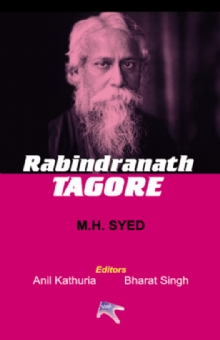Rabindranath Tagore (7 May 1861 − 7 August 1941), sobriquet Gurudev, was a great Bengali polymath. He was a popular poet, novelist, musician, and playwright, who reshaped Bengali literature and music in the late 19th and early 20th centuries. As author of Gitanjali and its “profoundly sensitive, fresh and beautiful verse”, and as the first Asian to win the Nobel Prize in Literature, Tagore was perhaps the most widely regarded Indian literary figure of all times. He was a mesmerising representative of the Indian culture whose influence and popularity internationally, perhaps could only be compared to that of Gandhiji, whom Tagore named “Mahatma” out of his deep admiration for him. Tagore modernised Bengali art by spurning rigid classical forms. His novels, stories, songs, dance-dramas, and essays spoke to political and personal topics. Gitanjali (Song Offerings), Gora (Fair-Faced), and Ghare-Baire (The Home and the World) are his best-known works, and his verse, short stories, and novels were acclaimed for their lyricism, colloquialism, naturalism and contemplation.
Contents :
1. An Illustrious Life
2. India of Tagore`s Vision
3. Tagore`s Nationalism
4. Literary Contribution
5. Tagore`s Spiritualism
6. The Great Genius
7. Tagore`s Philosophy of Humanism
8. Tagore`s Educational Philosophy
9. Gems of Poetry (Selected Poems)
10. Golden Words of Tagore
11. Tagore`s Life at a Glance
Bibliography

